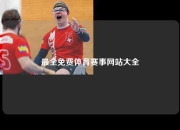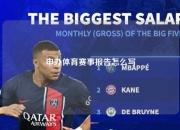In today's interconnected world, large-scale sports events not only serve as platforms for athletic competition but also act as bridges for cultural exchange and economic cooperation. From the Olympics to the World Cup, these global sporting spectacles bring together athletes from around the globe, coaches, spectators, and media representatives from different countries, creating an international stage that transcends national boundaries.
This article will delve into the role of English in large-scale sports events and its profound significance. We will explore how English is used in various aspects such as promotional materials, reporting, and marketing during these events. Additionally, we will discuss the challenges and opportunities presented by globalization and technological advancements in sports communication.
I. English in Large-Scale Sports Events
Large-scale sports events like the Olympics and the FIFA World Cup are more than just athletic competitions; they serve as venues for fostering mutual understanding between nations through cultural exchanges. Through sport, people across the world can come face-to-face, share their cultures, and develop emotional connections with one another. English plays a pivotal role in these events, serving as the primary language of communication among athletes, officials, and journalists alike.
English is widely utilized in event promotion, reporting, and advertising. Broadcast companies, social media platforms, and news outlets use English to broadcast live events, post after-event reports, and engage audiences in interactive discussions. This cross-cultural dissemination has significantly increased awareness and interest in sports globally.
Event organizers and sponsors leverage English to enhance brand visibility and market impact. Official logos, advertisements, and slogans often feature English, making it easier for businesses to reach an international audience and build strong relationships with consumers worldwide.
International organizations such as the International Olympic Committee (IOC) and other major international sports federations strive to standardize English usage within the sports community. They work on developing consistent rules, terminology, and explanations for referees and officials to ensure fair play and seamless communication.
II. Functionality of English in Sports Events
Beyond being a tool for communication, English adds depth and meaning to large-scale sports events. It serves as a means to honor champions at awards ceremonies and to showcase the rich cultural heritage of participating nations. These moments highlight the importance of fairness and unity in competitive sports.
Moreover, English facilitates educational and motivational functions during the event period. Universities and institutions offer scholarships and research opportunities to international students who participate in the games. This reciprocal education exchange promotes global perspectives and leadership skills while strengthening ties between countries.
III. Challenges and Opportunities
While English remains crucial in large-scale sports events, there are ongoing challenges associated with globalization. As non-English-speaking individuals increasingly become involved in international sports, organizing committees must address the issue of multilingualism. Balancing diversity with uniformity is essential to maintaining the integrity of events and ensuring inclusivity.
Technological innovations, particularly virtual reality (VR) and augmented reality (AR), provide new avenues for enhancing the viewing experience of sports events. Virtual attendees can immerse themselves in live broadcasts, giving them a sense of being present at the action. This technology expands the reach of English beyond traditional broadcasting methods.
As sports continue to evolve, incorporating digital technologies into event management presents both opportunities and challenges. Digital tools enable real-time data analysis, improved scheduling, and enhanced fan engagement. However, integrating advanced technologies requires careful consideration of logistical implications and potential drawbacks.
Conclusion
Large-scale sports events serve as powerful catalysts for cultural exchange and economic growth. English, as the lingua franca in many areas of sports, continues to be indispensable. Its continued relevance ensures that sports remain accessible to a wide audience while promoting peace and cooperation worldwide. By embracing innovation and adapting to changing trends, the future of sports promises even greater opportunities for linguistic integration and broader cultural appreciation.
版权声明
本文仅代表作者观点,不代表看个球立场。
本文系作者授权看个球发表,未经许可,不得转载。











